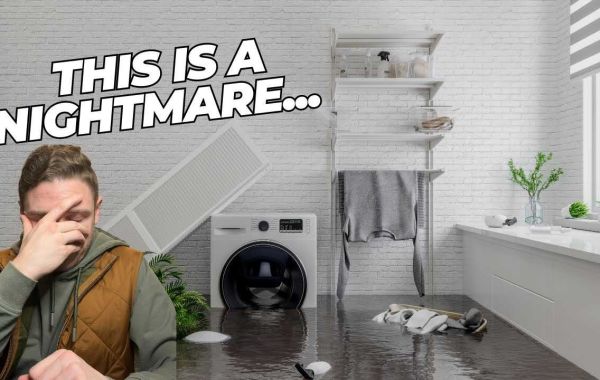Water damage is more than a nuisance—it’s a potential health hazard and a costly repair if not addressed quickly. Whether it’s caused by a burst pipe, leaking roof, or flooding from severe weather, taking the right steps immediately can help prevent long-term structural damage and mold growth. Partnering with a reliable water damage restoration company can ensure the cleanup process is handled quickly and professionally, minimizing risks and restoring your property safely.
Many property owners panic when water starts pouring in. But staying calm and following a clear action plan can save you time, money, and stress. According to Bulldog Restoration Cleaning LLC, a trusted water damage restoration company in Clear Lake Shores TX, acting fast is essential to reduce long-term damage. Here’s what local water damage service providers recommend you do right away after water intrusion.
Ensure Your Safety
Before touching anything, make sure your environment is safe. Prioritize your well-being above all else.
- Turn off electricity in affected areas to avoid shock hazards.
- Avoid walking in standing water until it’s assessed.
- Use protective gear (rubber gloves, boots, masks) if needed.
- Evacuate if the water is contaminated or flooding is extensive.
Local restoration experts strongly advise homeowners to avoid DIY inspection in risky conditions. Contact a nearby water damage repair contractor if you’re uncertain about safety.
Shut Off the Water Source
Stopping the water flow is essential to minimize damage.
- Locate and shut off the main water valve if a pipe bursts.
- Unplug leaking appliances like washing machines or dishwashers.
- If the leak comes from outside (e.g., storm or roof), temporarily cover the entry point using a tarp or plastic sheeting.
Local water damage contractors near me are often available for emergency help in stopping the leak and containing the situation.
Document the Damage
Before cleanup, take photos and videos of the affected areas. This step is crucial for filing an insurance claim later.
- Capture images of soaked furniture, flooring, walls, and personal belongings.
- Keep records of the water’s source, if identifiable.
- Note the time the damage occurred and any actions taken.
This documentation builds trust with insurance providers and proves that you acted responsibly and quickly.
Remove Excess Water
The next priority is removing standing water to prevent further issues like mold or foundation damage.
- Use buckets, mops, or wet/dry vacuums for small areas.
- For larger flooding, call a local water removal service near me to extract water using industrial-grade pumps.
- Open doors and windows to promote air circulation.
Many water cleanup experts recommend dehumidifiers and fans to speed up drying. This step is essential to preventing microbial growth.
Protect Your Belongings
Act quickly to save what you can.
- Move furniture, electronics, and valuables to a dry area.
- Remove rugs, drapes, and upholstery that hold moisture.
- Avoid using household fans on contaminated water—this can spread bacteria.
Hiring a local restoration contractor helps determine which items are salvageable and which may need professional cleaning or disposal.
Call a Water Damage Restoration Expert
A certified restoration company will assess, clean, and repair damage thoroughly—preventing secondary issues like mold or structural weakening.
- Look for nearby water damage restoration services with emergency availability.
- Ask about their certification, insurance claim support, and turnaround time.
- Choose professionals who follow IICRC (Institute of Inspection Cleaning and Restoration Certification) guidelines.
Partnering with trusted water damage repair experts ensures a comprehensive and safe recovery process from start to finish.
Contact Your Insurance Provider
Once the situation is under control, notify your insurance company and begin the claims process.
- Provide photos, videos, and documentation.
- Ask about policy coverage for emergency repairs and restoration.
- Keep receipts of all professional services and materials used.
Local experts often assist in communicating with insurance adjusters and can speed up approvals with professional assessments.
Prevent Future Water Damage
Once repairs are underway, it's wise to take preventative action.
- Install leak detectors and sump pumps.
- Schedule regular inspections for roofs, pipes, and basements.
- Insulate pipes to avoid freezing and bursting.
Your local water restoration contractor may offer annual maintenance plans to help catch vulnerabilities before they become costly emergencies.
Conclusion
Water damage can be overwhelming, but knowing how to act fast can minimize harm to your property and health. From ensuring safety to working with experienced restoration experts, every step plays a vital role in efficient recovery.
Don’t delay. Contact a nearby water damage service provider to get help as soon as possible—and take steps today to protect your property from future disasters.
FAQs
- How soon should I call a professional after water damage?
Immediately. The first 24–48 hours are critical for preventing mold and permanent structural damage. - Will my insurance cover water damage repairs?
It depends on your policy. Sudden water damage is often covered, but gradual leaks may not be. Always check with your provider. - Can I clean up water damage myself?
Minor spills, yes. But for large or contaminated flooding, it's best to call local restoration experts to avoid health risks and ensure proper cleanup. - How long does the water damage restoration process take?
Typically, drying takes 3–5 days. Full restoration can take a week or more depending on severity and repairs needed. - What are the risks of not treating water damage promptly?
Delays can lead to mold, electrical hazards, and serious structural damage, all of which are far more expensive to repair.








